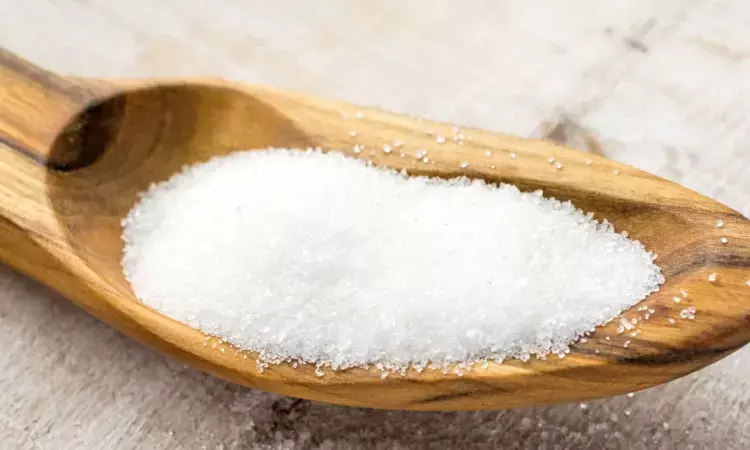- Home
- Medical news & Guidelines
- Anesthesiology
- Cardiology and CTVS
- Critical Care
- Dentistry
- Dermatology
- Diabetes and Endocrinology
- ENT
- Gastroenterology
- Medicine
- Nephrology
- Neurology
- Obstretics-Gynaecology
- Oncology
- Ophthalmology
- Orthopaedics
- Pediatrics-Neonatology
- Psychiatry
- Pulmonology
- Radiology
- Surgery
- Urology
- Laboratory Medicine
- Diet
- Nursing
- Paramedical
- Physiotherapy
- Health news
- Fact Check
- Bone Health Fact Check
- Brain Health Fact Check
- Cancer Related Fact Check
- Child Care Fact Check
- Dental and oral health fact check
- Diabetes and metabolic health fact check
- Diet and Nutrition Fact Check
- Eye and ENT Care Fact Check
- Fitness fact check
- Gut health fact check
- Heart health fact check
- Kidney health fact check
- Medical education fact check
- Men's health fact check
- Respiratory fact check
- Skin and hair care fact check
- Vaccine and Immunization fact check
- Women's health fact check
- AYUSH
- State News
- Andaman and Nicobar Islands
- Andhra Pradesh
- Arunachal Pradesh
- Assam
- Bihar
- Chandigarh
- Chattisgarh
- Dadra and Nagar Haveli
- Daman and Diu
- Delhi
- Goa
- Gujarat
- Haryana
- Himachal Pradesh
- Jammu & Kashmir
- Jharkhand
- Karnataka
- Kerala
- Ladakh
- Lakshadweep
- Madhya Pradesh
- Maharashtra
- Manipur
- Meghalaya
- Mizoram
- Nagaland
- Odisha
- Puducherry
- Punjab
- Rajasthan
- Sikkim
- Tamil Nadu
- Telangana
- Tripura
- Uttar Pradesh
- Uttrakhand
- West Bengal
- Medical Education
- Industry
Chemical found in commonly used artificial sweetener, sucralose, has DNA damaging properties: Study

USA: A new study published in the Journal of Toxicology and Environmental Health, Part B, has raised significant health concerns regarding the safety and regulatory status of the sugar substitute sucralose. Sucralose is sold under the brand name Splenda and used as an ingredient in packaged beverages and foods.
The researchers said people should stop eating it, and the government should regulate it more. They conducted laboratory experiments exposing human blood cells and gut tissue to sucralose-6-acetate. The findings build on previous research that linked sucralose to gut health problems.
Susan S. Schiffman, University of North Carolina/North Carolina State University, Raleigh, NC, USA, and colleagues aimed to determine the pharmacokinetic and toxicological properties of sucralose-6-acetate, a structural analogue of the artificial sweetener sucralose. Sucralose-6-acetate is an intermediate and impurity in sucralose's manufacture, and recent commercial sucralose samples were shown to contain up to 0.67% sucralose-6-acetate.
The researchers reported that sucralose causes DNA to break apart, putting people at risk for diseases. Sucralose was also linked to leaky gut syndrome, in which the intestine lining is worn down and becomes permeable. Symptoms are painful digestion, burning sensation, bloating, gas, and diarrhoea.
A substance which causes DNA damage is called genotoxic. Researchers have found that sucralose consumption leads to the production of sucralose-6-acetate, which is shown to be genotoxic in the new study. The study also revealed sucralose-6-acetate in trace amounts in off-the-shelf products that are so high they would exceed the safety levels allowed currently in Europe.
The study noted, Sucralose-6-acetate significantly increased the gene expression associated with inflammation, oxidative stress, and cancer, with the most significant expression for the metallothionein 1 G gene (MT1G).
"It's time to revisit the safety and regulatory status of sucralose because the evidence is mounting that it carries significant risks. In a statement, "If nothing else, I encourage people to avoid products containing sucralose," said researcher Susan Schiffman, PhD, adjunct professor of biomedical engineering at North Carolina State University. "It's something you should not be eating."
The FDA says sucralose is safe, which is 600 times sweeter than table sugar and used in "beverages, baked goods, gelatins, chewing gum, and frozen dairy desserts."
"To determine sucralose safety, the FDA reviewed more than 110 studies designed to identify possible toxic effects, including studies on the reproductive and nervous systems, carcinogenicity, and metabolism," the agency explained on its website. "The FDA also reviewed human clinical trials to address metabolism and effects on diabetes patients."
Dr Kamal Kant Kohli-MBBS, DTCD- a chest specialist with more than 30 years of practice and a flair for writing clinical articles, Dr Kamal Kant Kohli joined Medical Dialogues as a Chief Editor of Medical News. Besides writing articles, as an editor, he proofreads and verifies all the medical content published on Medical Dialogues including those coming from journals, studies,medical conferences,guidelines etc. Email: drkohli@medicaldialogues.in. Contact no. 011-43720751


